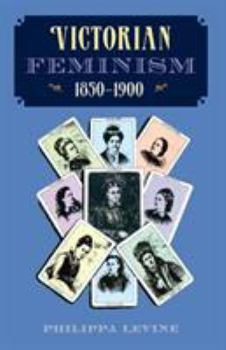Victorian Feminism, 1850-1900
"Admirable, lucid... A splendid textbook (complete with chronologies of significant dates) that offers a competent overview of feminist protest in the Victorian era. It will be widely recommended for students of history and women's studies courses in higher education." -- Times Higher Education Supplement "An excellent, well-researched survey of the many fronts of feminist struggle for equality from 1850 to 1900... The thesis of this...
Format:Paperback
Language:English
ISBN:0813013216
ISBN13:9780813013213
Release Date:July 1989
Publisher:University Press of Florida
Length:179 Pages
Weight:0.55 lbs.
Dimensions:0.5" x 6.2" x 8.7"
Customer Reviews
0 rating





